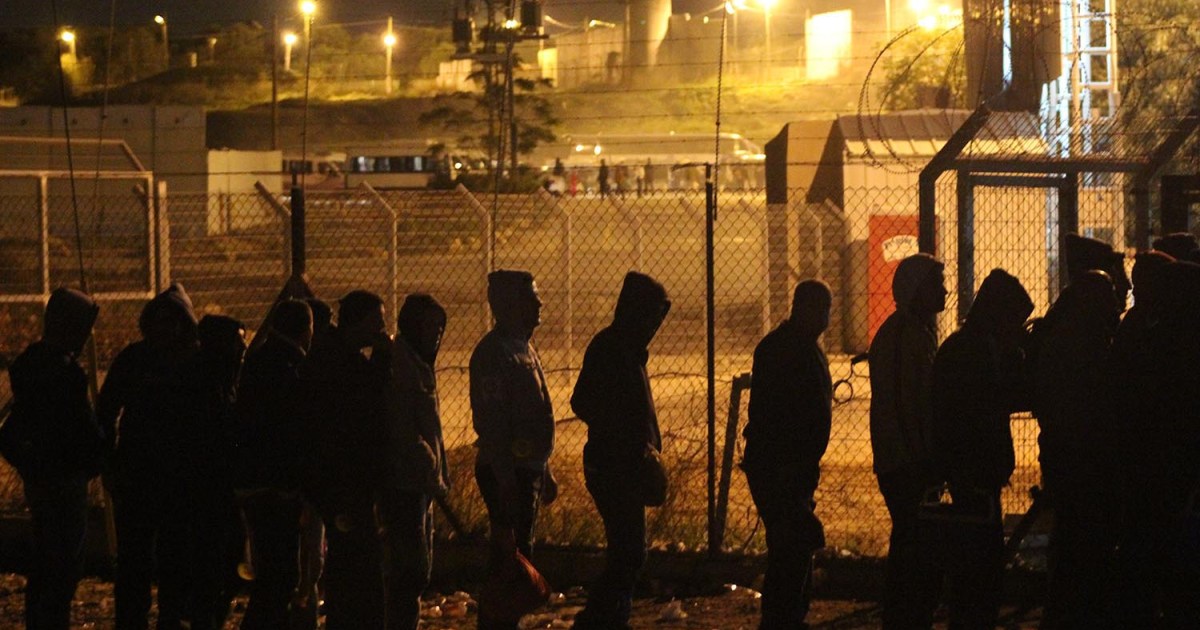Palestinian workers heading to their workplaces inside the country through the Taiba checkpoint in the city of Tulkarm between the West Bank and Israel in previous times (Al Jazeera - Archive)
The Israeli government, facing a shortage of about 100,000 construction workers after West Bank Palestinians were denied access to work due to the ongoing war on the Gaza Strip, decided to bring in 35,000 foreign workers through private companies, raising concerns about a possible rise in human trafficking, according to Calcalist. Israeli specialist.
The Israeli Ministry of Justice had warned of the potential dangers of such a decision, as it may lead to an increase in the pace of human trafficking, according to the newspaper.
The decision, led by the Ministry of Housing and implemented by private parties, conflicts with the Ministry of Justice and the Population and Immigration Authority. It also contradicts the approach of the US State Department unit to monitor global efforts to combat human trafficking, as the newspaper reported.
This step may affect Israel's classification in upcoming American tracking reports, which may lead in advanced stages to the imposition of economic sanctions, according to the same newspaper.
Paralysis in the Israeli construction sector, which depends on Palestinian workers whose entry to work in Israel is currently prohibited (Al Jazeera)
Yehuda Morgenstern, Executive Director of the Housing Ministry, led the initiative to employ foreign workers, contrary to a previous agreement with the Ministry of Justice. While legal experts within the government raised concerns about the decision-making process, stressing that it may lead to legally questionable government actions.
The Israeli government had previously decided that there would be no recruitment of foreign workers except from countries that signed bilateral agreements with Israel, to ensure an organized recruitment process. However, the move is now seen as a departure from established policy, with potential consequences for Israel's international relations and economic stability.
Morgenstern defended the decision, saying, "In the end, we have to take risks. It may not be guaranteed, maybe 95 percent, but these are the risks we take in times of war, otherwise we would not have any workers here at all."
The newspaper notes that the decision also raises ethical concerns, as workers are expected to pay exorbitant fees to private sector companies in exchange for employment, which affects their rights.
Countries such as Moldova, which has bilateral agreements with Israel, threatened to cancel these agreements after discovering attempts to recruit workers through private companies, according to the newspaper, which was also raised by Sri Lanka and Uzbekistan.
Palestinian workers with an Israeli employer in a new road project in the West Bank (Al Jazeera)
The newspaper states that despite the government’s intention to address the labor shortage in the construction and industrial sectors, the decision has not yet proven effective in accelerating recruitment processes. Moreover, it poses diplomatic challenges with potential repercussions.
Recently, a representative of the Israeli Ministry of Finance warned that Israel's economy would suffer a huge loss as a result of not allowing Palestinian workers to enter it, likely to reach 3 billion shekels ($830 million) per month, during a discussion session in the Knesset. This comes within the context of the economic repercussions of the ongoing Israeli aggression on the Gaza Strip.
The head of the Israeli Contractors Association, Raul Sargo, expressed the severe difficulties facing his sector, as productivity reached only 30%, while work stopped on half of the construction sites.
Since the “Al-Aqsa Flood” operation launched by the Palestinian resistance on the settlements surrounding the Gaza Strip on October 7, about 200,000 Palestinians - who were bringing cash amounting to 900 million shekels per month ($243 million) into the Palestinian market - have been prevented from going to the Palestinian market. Their places of work inside Israel.
Source: Israeli press

